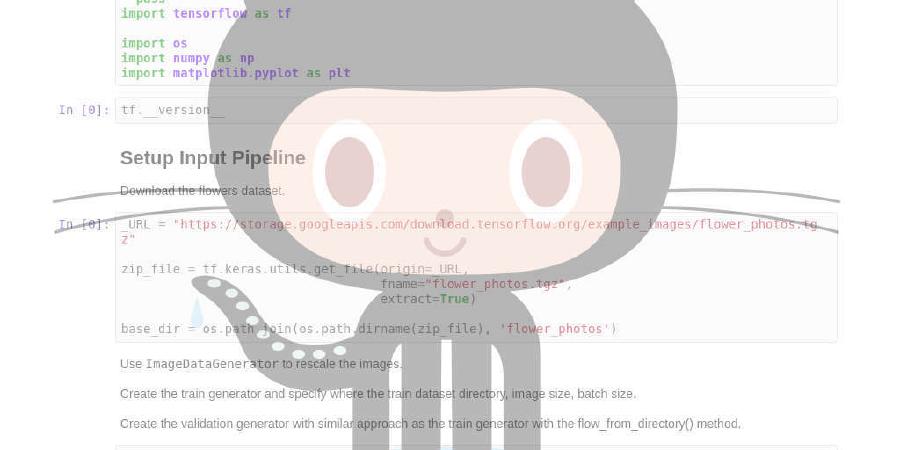jarun/nnn

:dolphin: The missing terminal file manager for X.
| repo name | jarun/nnn |
| repo link | https://github.com/jarun/nnn |
| homepage | |
| language | C |
| size (curr.) | 4046 kB |
| stars (curr.) | 7553 |
| created | 2016-08-20 |
| license | BSD 2-Clause “Simplified” License |
Introduction
nnn is a full-featured terminal file manager. It’s tiny and nearly 0-config with an incredible performance.
nnn is also a du analyzer, an app launcher, a batch renamer and a file picker. The plugin repository has tons of plugins and documentation to extend the capabilities further. You can plug new functionality and play with a hotkey. There’s an independent (neo)vim plugin.
It runs smoothly on the Pi, Termux, Linux, macOS, BSD, Haiku, Cygwin, WSL, across DEs and GUI utilities or a strictly CLI environment.
Features
- Resource sensitive
- Typically needs less than 3.5MB resident memory
- Works with 8-bit colors
- Disk-IO sensitive (few disk reads and writes)
- No FPU usage (all integer maths, even for file size)
- Minimizes screen refresh with fast line redraws
- Tiny binary (typically less than 100KB)
- Portable
- Statically-linked binary available
- Language-agnostic plugins
- Minimal library deps, easy to compile
- Compile in/out features with make variables
- No config file, minimal config with sensible defaults
- Widely available on many packagers
- Unicode support
- Quality
- Privacy-aware (no unconfirmed user data collection)
- POSIX-compliant, follows Linux kernel coding style
- Highly optimized, static analysis integrated code
- Modes
- Light (default), detail
- Disk usage analyzer (block/apparent)
- File picker, (neo)vim plugin
- Navigation
- Navigate-as-you-type with dir auto-select
- Contexts (aka tabs/workspaces) with custom colors
- Sessions, bookmarks with hotkeys; pin and visit a dir
- Remote mounts (needs sshfs, rclone)
- Familiar shortcuts (arrows, ~, -, @), quick reference
- CD on quit (easy shell integration)
- Auto-proceed on opening files
- Search
- Instant filtering with search-as-you-type
- Regex (POSIX/PCRE) and string (default) filters
- Subtree search plugin to open or edit files
- Sort
- Ordered pure numeric names by default (visit /proc)
- Case-insensitive version (aka natural) sort
- By file name, modification/access time, size, extension
- Reverse sort
- Mimes
- Open with desktop opener or specify a custom app
- Create, list, extract, mount (FUSE based) archives
- Option to open all text files in EDITOR
- Information
- Detailed file information
- Media information plugin
- Convenience
- Run plugins and custom commands with hotkeys
- FreeDesktop compliant trash (needs trash-cli)
- Cross-dir file/all/range selection
- Batch renamer for selection or dir
- Display a list of files from stdin
- Copy (as), move (as), delete, archive, link selection
- Dir updates, notification on cp, mv, rm completion
- Copy file paths to system clipboard on select
- Create (with parents), rename, duplicate (anywhere) files and dirs
- Launch GUI apps, run commands, spawn a shell, toggle executable
- Hovered file set as
$nnnat prompt and spawned shell - Lock terminal after configurable idle timeout
Quickstart
- Install optional deps (if you need any).
- Configure cd on quit.
- Use option
-ein your alias to open text files in$VISUAL(else$EDITOR, fallback vi). - Install plugins.
- Use option
-xto copy selected file paths to system clipboard and show notis on cp, mv, rm completion. - For a CLI-only environment, customize and use plugin
nukewith option-c(overrides-e).
Don’t memorize! Arrows (or h j k l), /, q suffice. Tab creates, cycles contexts. ? lists shortcuts.
Installation
No permission to install packages? Get the statically linked binary from the latest release.
Library dependencies
A curses library with wide char support (e.g. ncursesw), libreadline (optional) and standard libc.
Utility dependencies
| Dependency | Installation | Operation |
|---|---|---|
| xdg-open (Linux), open(1) (macOS), cygstart(Cygwin), open (Haiku) | base | desktop opener |
| file, coreutils (cp, mv, rm), xargs | base | file type, copy, move and remove |
| tar, (un)zip [atool/bsdtar for more formats] | base | create, list, extract bzip2, (g)zip, tar |
| archivemount, fusermount(3)/umount (macOS) | optional | mount, unmount archives |
| sshfs, rclone, fusermount(3)/umount (macOS) | optional | mount, unmount remotes |
| trash-cli | optional | trash files (default action: rm) |
| vlock (Linux), bashlock (macOS), lock(1) (BSD),peaclock (Haiku) | optional | terminal locker (fallback: cmatrix) |
| advcpmv (Linux) (integration) | optional | copy, move progress |
$VISUAL (else $EDITOR), $PAGER, $SHELL |
optional | fallback vi, less, sh |
From a package manager
Install nnn from your package manager. If the version available is dated try an alternative installation method.
Release packages
Packages for Arch Linux, CentOS, Debian, Fedora and Ubuntu are auto-generated with the latest stable release.
From source
Download the latest stable release or clone this repository (risky), install deps and compile. On Ubuntu 18.04:
sudo apt-get install pkg-config libncursesw5-dev libreadline-dev
sudo make strip install
PREFIX is supported, in case you want to install to a different location.
See the developer guides for source verification, compilation notes on the Pi, Cygwin and other tips.
Shell completion
Completion scripts for Bash, Fish and Zsh are available. Refer to your shell’s manual for installation instructions.
Elsewhere
- Wikipedia
- ArchWiki
- FOSSMint
- gHacks Tech News
- Hacker News [1] [2]
- It’s FOSS
- LinuxLinks [1] [2] [3]
- Suckless Rocks
- Ubuntu Full Circle Magazine - Issue 135
Developers
- Arun Prakash Jana (Copyright © 2016-2020)
- 0xACE
- Anna Arad
- KlzXS
- Maxim Baz
- and other contributors
nnn is actively developed. Visit the to the ToDo list to contribute or see the features in progress.






